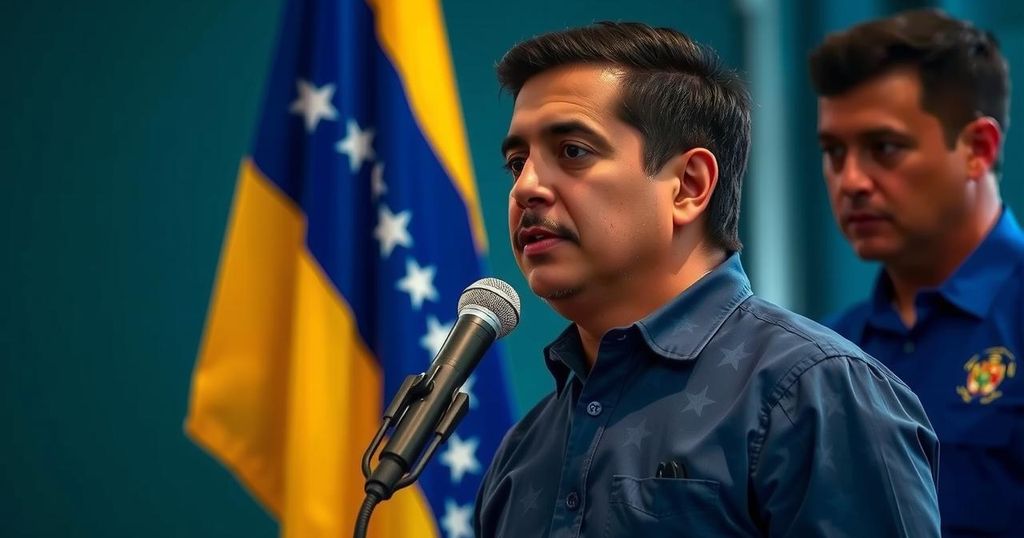U.S. Recognizes Opposition Leader Edmundo González as Venezuela’s President-Elect

The U.S. has acknowledged Edmundo González as Venezuela’s “president-elect,” amidst ongoing disputes over the legitimacy of the July elections won by Nicolás Maduro. Despite claims of electoral victory by González and significant international concerns over transparency, Maduro’s regime remains in power. Colombian President Gustavo Petro’s recent shift in support further complicates the political environment as Venezuela approaches a new presidential term.
The United States has officially recognized Edmundo González, a candidate from the Venezuelan opposition, as the “president-elect” of Venezuela, months after the contentious July elections that saw Nicolás Maduro claiming victory. U.S. Secretary of State Antony Blinken emphasized the need for respect for Venezuelan voters’ choices. Although the Biden administration maintains that González received the most votes, it stops short of formally acknowledging him as president-elect. The electoral process raised significant concerns, with the Venezuelan National Electoral Council, dominated by Maduro’s allies, declaring him the winner shortly after polls closed. Countering this, opposition leaders, including González, presented their findings from 80% of the voting machines, suggesting the former diplomat garnered twice Maduro’s votes. González expressed appreciation for the recognition of Venezuelan sovereignty, highlighting the collective desire for change. Following an arrest warrant, González has since relocated to Spain. The Venezuelan Foreign Minister responded to U.S. remarks with personal critiques, criticizing the American administration’s previous failures and dismissing the call for election transparency. Despite the attempts by international observers, including the United Nations, to validate the election results, credibility remains contested. Recently, Colombia’s President Gustavo Petro retracted his support for the elections, deeming them flawed, despite prior advocacy for their conduct. As Venezuela enters a new presidential term on January 10, Maduro prepares for his impending swearing-in ceremony, while the legitimacy of the election continues to evoke debate.
The current political landscape in Venezuela is marked by division and controversy, especially surrounding the presidential elections held in July 2023. National and international observers have criticized the electoral process for lacking transparency and credibility, with allegations of vote manipulation favoring Nicolás Maduro. The opposition, represented by figures like Edmundo González, has consistently claimed electoral victory based on independent tallies of voting data, challenging Maduro’s regime and calling for democratic respect. The ongoing international discussions surrounding these elections and the subsequent recognition of opposition leaders play a crucial role in shaping Venezuela’s political future.
In summary, the recognition of Edmundo González as Venezuela’s “president-elect” by the United States underscores the ongoing dispute surrounding the legitimacy of the July elections and reflects the divided political landscape within the country. This development highlights international concerns over democratic processes in Venezuela, where calls for transparency and respect for voters’ choices remain paramount. As Venezuela moves towards a new presidential term, the implications of these events continue to unfold, potentially influencing future political dynamics.
Original Source: apnews.com








